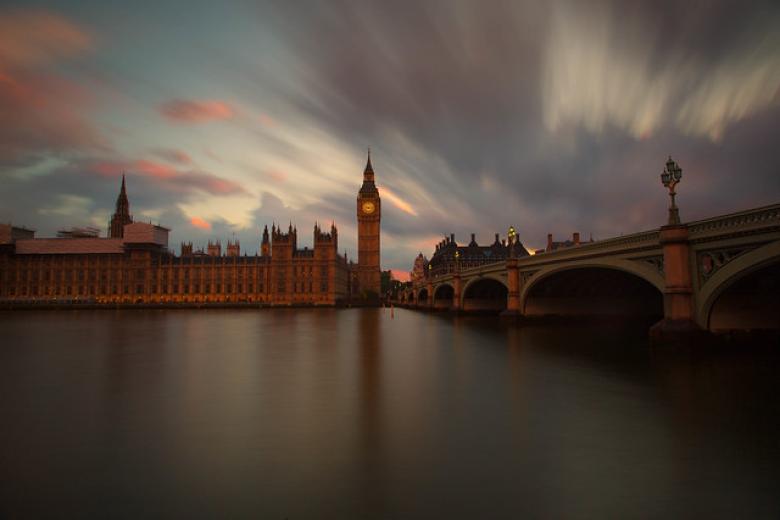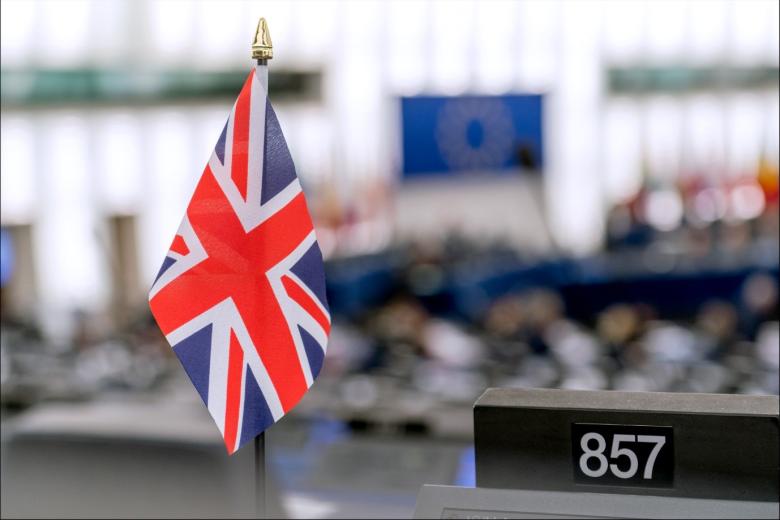Mexican standoff (part 1)
With the date of the United Kingdom’s withdrawal fast approaching, it is becoming increasingly evident that the British government still has no clear plan, relies on wishful thinking and is running out of viable options. To prevent a complete disaster, a much more targeted salvaging operation might be required.
Almost two years ago, on a night, as many Britons were still blissfully unaware of what was going on across the nation, a well-known recent figure of British politics stepped up and had his voice heard. It was the voice of a man who had fought for what had appeared to be a lost cause, but through a cunning mix of mendacity, polarization and old-fashioned nostalgia managed to turn it around. His country, having made a decision that shocked many of those who had claimed to be knowledgeable (or whose profession entailed the dispensation of such knowledge), now was about to witness the hyperbolic spectacle of his rhetoric. Hoarse from all the shouting, both literal and proverbial, the leader of the United Kingdom Independence Party stood up in a provisional tent and spoke up: “Let 23 June go down in our history as Independence Day!”. Apart from the fact that this throwaway applause line must sound rather offensive to all those countries formerly colonized by the United Kingdom, it also has not exactly aged well.
You see, Mr Farage was projecting the illusion that a vote to withdraw from the European Union was the hard part. Alongside his Conservative fellow travellers, Boris Johnson and Michael Gove, he created the impression that everything would be smooth sailing thereafter. After all, were the Germans not smart about economics and cognizant of the fact that for their economy to survive that their cars would also have to be sold in Britain? Would the United States not be loyal in the spirit of a truly “special relationship” and offer the United Kingdom a preferential free trade deal? Of course, the Anglophone countries like Canada, Australia, New Zealand and South Africa would also be beating down the doors to England’s greenest hills in order to secure the deal of a lifetime? More importantly, was the European Union not a project of sclerotic bureaucrats and naïve politicians who never understood the traditions, spirit and pride of a true seafaring nation anyway? Brexit would be good for Britain, good for Europe and good for the world.
The Independence Day Fallacy
Indeed, if you were part of the echo chamber only listening to what you wanted to hear, that would sound rather logical, wouldn’t it? Alas, the problem is that reality has a rather cruel way of intruding on the populist castles built on puffy clouds in the sky. Instead of climbing into an ivory tower of happiness and prosperity, the consequences of “Independence Day” appear much more nuanced, complicated and hard to manage than Mr Farage might have imagined when he was completely drunk on his pyrrhic victory. The truth has revealed itself to be a messy business, and it’s becoming clearer that the British people have been sold a false bill of goods. Indeed, a glance at the latest developments regarding the United Kingdom’s proposed withdrawal from the European Union will clarify this even further

Government by Chaos
First, there is the issue of the United Kingdom government’s complete lack of competence, paired with an equally concerning lack of consistency. Whereas the prime minister appears to favour some kind of trade arrangement with the European Union, and old Cameronites like former Attorney General Dominic Grieve (more about him later in this piece) wish to preserve most of the edifice of Britain’s current EU membership, extreme Brexiteers led by the somewhat overrated Jacob Rees-Mogg want a complete, resolute and irreversible break with the EU. Instead, they wish to chart a fresh approach (at least that is how they perceive it). The problem is that whilst they know what they do not want, they are refusing to say what are truly aiming for. Like during the referendum campaign, Leave proponents are refusing to accept fiscal, economic, social and political responsibility for the implementation of their proposal. It would be one thing if Brexit proponents laid out a clear plan for the execution of the referendum result – fully costed, fully funded and fully above board regarding the challenges that the country will inevitably face. Unfortunately, no such candour and serious discussion has been forthcoming. Instead, what has held sway in the Brexit camp is a mixture of wishful thinking, incongruous analogies and unresolved issues – paired with a dash of thinly veiled xenophobia and paranoia. The attacks on former Attorney General Dominic Grieve, a Conservative, for his French maternal lineage, are only the latest manifestation of the extremism espoused by many of those on the side of the rupture with Europe.
The fact that Prime Minister Theresa May operates without a parliamentary majority and is dependent on the ultra-conservative Democratic Unionist Party also makes matters even more complicated. Thus, Mrs May is prone to blackmail from three camps: the extreme Brexiteers, the sliver of Europhile Conservative MPs who wish to retain the substance of Single Market membership and potential successors like Johnson and Gove. The fight over retention of some form of customs union or even Single Market membership (rejected by Brexiteers), as opposed to a clean break (rejected by those advocating continued close ties to Europe) has paralyzed the cabinet and is a powder keg waiting to explode.
One sign for this was the dispute between Prime Minister May and her Brexit Secretary, David Davis, over the wording of the backstop clause governing the future UK-Irish border (which would also become the European Union’s external frontier upon Britain’s withdrawal from the EU). The backstop clause would boil down to the UK remaining in the EU customs union for a temporary period after the end of the 2-year transition period after the date of withdrawal. Whilst May saw this as a necessary compromise, Davis (like other proponents of the Brexit side) feared that a transition period without an express temporal limit would lead to a never-ending Brexit process, which would see the UK “leaving” for years, without the transition period ever ending. After much acrimony between Mrs May and Mr Davis, the Prime Minister had to give in – though her allies are essentially maintaining that the climbdown was more of a rhetorical ploy than a concession on substance.
Deep Fissures
Matters are certainly not helped by an internal power struggle going on between different wings of the Conservative Party that can broadly be divided into those who wish to retain close ties to the EU (often overlapping with those who wish to retain Theresa May as Prime Minister) and those favouring a clear break (frequently identical with those wishing to remove Mrs May and replace her with a more conservative leader). The problem is that there is no obvious successor within the Conservative Party to Mrs May. The referendum campaign and the subsequent ascension of Mrs May left pretty much all plausible leadership figures damaged: Boris Johnson was burnt by his refusal to contest for the leadership; and Michael Gove for essentially betraying Boris Johnson by standing for the leadership.
Meanwhile, possible other candidates like former Employment Secretary Priti Patel shot themselves in the proverbial foot, whilst Chancellor of the Exchequer Philip Hammond (the only cabinet member to have served as Foreign Secretary, Chancellor of the Exchequer and Defence Secretary – and thus, three of the four traditional “great offices of state”) has rendered himself unpopular with the hardcore Leave camp within the Conservative Party by not making much of a secret of his sympathies for close links to the European Union. Meanwhile, the purportedly leading candidate from the hard right, Jacob Rees-Mogg (the MP from Somerset who has never served in cabinet under either former Prime Minister David Cameron or Mrs May) is more of an entertaining sideshow than a serious contender. His social views on matters like reproductive choice, equal marriage, the relationship of church and state and the country’s imperial legacy are so far out of the mainstream that they would become liabilities in a modern industrialized nation – even one as deeply Eurosceptic as the United Kingdom.
| Read part two of this diptych, image by Flickr - Muffin - Brexit sailing apart More blogs on Law Blogs Maastricht |
-
Faites vos jeux
Britain gets a hard-fought extension, with incalculable consequences.

-
Change of course?
With options running out before the United Kingdom faces yet another critical deadline, Prime Minister Theresa May tries one last (desperate) gamble to “save Brexit” – reaching out to the Labour Party. Will it be successful? Which are the options remaining on the table? What could happen next? Here...

-
The Ides of March: The United Kingdom gets one last chance. Will it use it?
Staying just a little bit longer? Or for good?
Summary: With the European Council throwing a lifeline to the United Kingdom, all options are back on the table. Rather than taking back control, the United Kingdom now finds itself dependent on the remainder of the European Union – with the absence of...